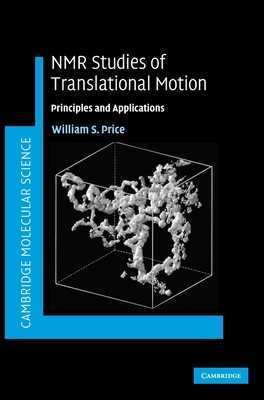
- We will send in 10–14 business days.
- Author: William S Price
- Publisher: Cambridge University Press
- ISBN-10: 0521806968
- ISBN-13: 9780521806961
- Format: 17.3 x 24.9 x 2.5 cm, kieti viršeliai
- Language: English
- SAVE -10% with code: EXTRA
Reviews
Description
Translational motion in solution, either diffusion or fluid flow, is at the heart of chemical and biochemical reactivity. Nuclear Magnetic Resonance (NMR) provides a powerful non-invasive technique for studying the phenomena using magnetic field gradient methods. Describing the physical basis of measurement techniques, with particular emphasis on diffusion, balancing theory with experimental observations and assuming little mathematical knowledge, this is a strong, yet accessible, introduction to the field. A detailed discussion of magnetic field gradient methods applied to Magnetic Resonance Imaging (MRI) is included, alongside extensive referencing throughout, providing a timely, definitive book to the subject, ideal for researchers in the fields of physics, chemistry and biology.
EXTRA 10 % discount with code: EXTRA
The promotion ends in 22d.10:28:29
The discount code is valid when purchasing from 10 €. Discounts do not stack.
- Author: William S Price
- Publisher: Cambridge University Press
- ISBN-10: 0521806968
- ISBN-13: 9780521806961
- Format: 17.3 x 24.9 x 2.5 cm, kieti viršeliai
- Language: English English
Translational motion in solution, either diffusion or fluid flow, is at the heart of chemical and biochemical reactivity. Nuclear Magnetic Resonance (NMR) provides a powerful non-invasive technique for studying the phenomena using magnetic field gradient methods. Describing the physical basis of measurement techniques, with particular emphasis on diffusion, balancing theory with experimental observations and assuming little mathematical knowledge, this is a strong, yet accessible, introduction to the field. A detailed discussion of magnetic field gradient methods applied to Magnetic Resonance Imaging (MRI) is included, alongside extensive referencing throughout, providing a timely, definitive book to the subject, ideal for researchers in the fields of physics, chemistry and biology.


Reviews